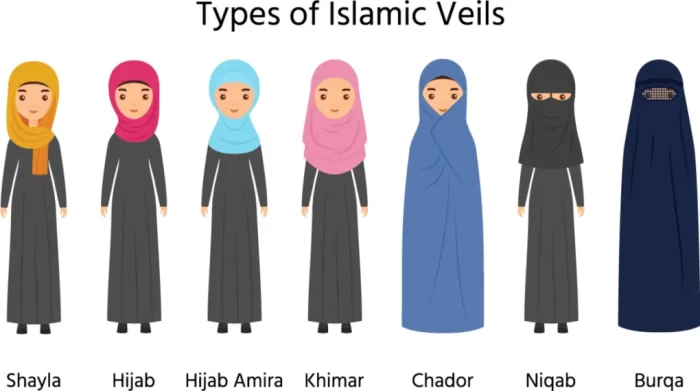THE ASIAN INDEPENDENT UK

Bal Ram Sampla
In the UK, some people have been asking whether face covering like the burqa should be banned in public. Only a small number of Muslim women in Britain wear them, but the topic often comes up in news and politics. People have different opinions—some are worried about security, some say it’s about women’s rights, and others argue it’s about freedom of religion and cultural respect.
Security and Crime Concerns
 One of the biggest reasons people talk about banning the burqa is security. Some believe that covering the face makes it harder for police to identify people. Although this doesn’t happen often, there have been some cases where criminals or terror suspects used burqas to hide their identities.
One of the biggest reasons people talk about banning the burqa is security. Some believe that covering the face makes it harder for police to identify people. Although this doesn’t happen often, there have been some cases where criminals or terror suspects used burqas to hide their identities.
For example, in 2013, a terrorism suspect named Mohammed Ahmed Mohamed escaped from police by putting on a burqa at a mosque in London (1). In 2005, another terror suspect, Yassin Omar, wore a burqa to escape after the failed London bombings (2).
There were also crimes like the 2013 Selfridges robbery in London, where robbers wore burqas to steal over £1 million in watches (6) and a robbery in Leicester in 2019 where a man in a burqa threatened a shopkeeper with a knife (7).
Women’s Rights and Freedom
Some people say that wearing a burqa is a sign of oppression. They believe that women are being forced to wear it and that banning it would help free them. Countries like France and Belgium have already banned face coverings in public places for this reason (5).
In 2018, UK politician Boris Johnson wrote an article saying burqa-wearing women looked like “letterboxes.” He didn’t support a ban, but many people found his comments insulting (3).
Culture and British Values
Another argument for banning the burqa is that it goes against British values like openness and face-to-face communication. Some people feel that full face coverings make it harder for people to connect and live together peacefully.
Some MPs including Kemi Badenoch, Opposition Leader of the Conservative Party refuses to speak to women in a burqa in her constituency surgery.
Some disagree. They say that the UK is a multicultural country and should accept different ways of life.
Politics and Populist Pressure
“Given the prime minister’s desire to strengthen strategic alignment with European neighbours, will he, in the interests of public safety, follow the lead of France, Denmark, Belgium and others, and ban the burqa?”.
Her comments were strongly criticised by Muslim groups, who said it would increase hatred and fear toward Muslims [4].
The Role of the Media
 The media also plays a big part in keeping this issue in the spotlight. News stories often highlight crimes where people used burqas, even though these are very rare events.
The media also plays a big part in keeping this issue in the spotlight. News stories often highlight crimes where people used burqas, even though these are very rare events.
Also, media reports from countries in Europe—where burqa bans are already in place—make some people in the UK wonder if Britain should do the same [5].
Legal and Human Rights Issues
 In the UK, people have the right to practice their religion. The Human Rights Act protects freedom of belief and expression. If the government tried to ban the burqa, it would likely face legal challenges in court.
In the UK, people have the right to practice their religion. The Human Rights Act protects freedom of belief and expression. If the government tried to ban the burqa, it would likely face legal challenges in court.
There’s also a risk that banning the burqa would make Muslim women feel unsafe or unwanted in public. That could lead to more social division, not less.
Conclusion
The debate about banning the burqa in the UK brings up important issues—safety, freedom, gender, and how different cultures live together.
The fact is banning the burqa is not Islamophobia. Many Muslim countries have banned burqa as it poses security risk (8).
A strong majority of the British public supports banning the burqa in public places, according YougovUK polls.
While the issue remains politically sensitive, the debate is far from settled—and hinges on nuanced questions about values, identity, and freedoms.
References
1. BBC News. (2013, November 3). Burka-clad terror suspect Mohammed Ahmed Mohamed flees surveillance. https://www.bbc.com/news/uk-24797203
2. The Guardian. (2007, July 11). July 21 bombers found guilty. https://www.theguardian.com/uk/2007/jul/11/july7.uksecurity
3. BBC News. (2018, August 6). Boris Johnson under fire for burka ‘letterbox’ comments. https://www.bbc.com/news/uk-politics-45096519
4. The Guardian. (2025, June 6). Reform UK accused of inflaming hostility towards Muslims. https://www.theguardian.com/politics/2025/jun/06/reform-uk-inflaming-hostility-towards-muslims-leading-british-muslims-warn
5. BBC News. (2018, August 6). Burka bans: Where are they in Europe? https://www.bbc.com/news/world-europe-13038095
6. BBC News. (2013, November 8). Selfridges gang who wore burkas in £1m raid jailed. https://www.bbc.co.uk/news/uk-england-london-24866069
7. Leicester Mercury. (2019, February 22). Burqa-wearing knife-wielding robber jailed for Rolex raid. https://www.leicestermercury.co.uk/news/leicester-news/burqa-wearing-knife-wielding-robber-2570430
8. https://www.spectator.co.uk/article/reforms-burqa-ban-isnt-islamophobic/








